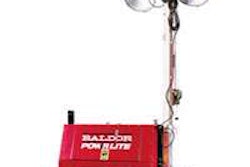Taxing success
By Kirk Landers
“April is the cruelest month,” wrote the poet T.S. Eliot. He was referring to the wear and tear that April’s transition weather wreaks on the human spirit.
On a more mundane level, it was a cruel month in U.S. transportation politics, too. In Washington, D.C., the Bush Administration offered a Fiscal Year 2009 transportation budget that would correct a projected $3.2 billion shortfall in the highway account of the Highway Trust Fund by — what else? — borrowing.
In this case, the Administration wants to borrow money from the Mass Transit Account to cover the highway deficit. The budget proposal did not include a plan to repay the mass transit account or deal with future deficits in the highway account. It was, in fact, just a political document offered up by an administration that has confronted the nation’s worsening transportation crisis with nothing more than an occasional bucket of philosophy.
In case you missed it, the Administration’s solution to the road and bridge crisis is to privatize everything — add capacity to the system with toll roads, toll lanes, and toll bridges, and control the traffic volume on overused roads with congestion pricing.
The Administration’s solution to the eroding resources for maintaining existing roads and bridges is to get out of town before the sky falls, proudly trumpeting the fact that it did not raise the fuel tax, no matter how bad things got on the nation’s roads.
April also brought some evidence that privatization is not a panacea.
In New York, we watched as city and state squared off on the congestion pricing issue. The New York City government had approved a plan to ratchet up tunnel and bridge tolls for vehicles entering Manhattan during peak hours, but the state assembly shot it down.
One group saw this as an opportunity to raise revenues while improving air quality, reducing traffic, and encouraging greater use of mass transit. Another group saw it as a punitive tax on city commerce, and one that would increase the cost of living and doing business in the city…thus providing more incentive for people and businesses to leave the city, fueling the very sprawl that has created epic traffic problems in most other major U.S. cities and that renders mass transit ineffective.
Tolling and congestion pricing are taxes on success. The more people who need access to the road or city, the more you can charge. And while one group of political thinking loves the concept, it may make better theory than policy.
For one thing, American citizens have shown a resistance to tolling.
For another, privatization brings its own challenges: what makes the private sector so strong is the constant dying off of the weak. What happens when a private enterprise that owns and operates critical transportation infrastructure goes belly up?
April brought a reminder of this eventuality, too. Two decades ago, the airline industry was deregulated so that free market forces would improve service and lower prices. In April, the new Airline Quality Rating survey was released, showing a one-year increase of 60% in consumer complaints, and worsening on-time problems for the fifth consecutive year. The week before the survey was released, three airlines went out of business, and most of those that are left are awash in red ink. A few weeks before that, the nation’s most successful carrier was called on the carpet for cutting corners on maintenance.
Privatization in all its forms can help us solve America’s transportation crisis, but it’s not THE solution. We will also need a fuel tax increase, creativity, and the kind of problem-solving leadership that has been sorely lacking in this debate. BR








